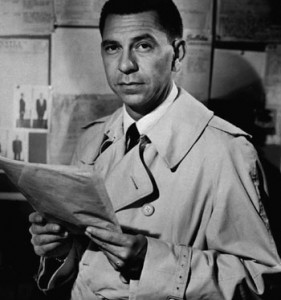Your Hit Parade was one of the most successful music
programs of radio’s golden age, running from 1935-53 on radio and then continuing
over television until 1959.
The series evolved into playing the top tunes of the week (often in no particular order) with each song sung live on the air by one of the series’ vocalists. There are more than 100 episodes in circulation, and you can hear a little of the evolution of music over two decades. However, it should be note there’s only handful of recordings from the 1930s and even fewer episodes of the 1950s. The sweet spot for circulating episodes is between 1942 and 1949, so if you love 1940s pop music, Your Hit Parade is for you.
It’s probably my favorite era in popular music with popular
music being influenced by old time country western and jazz, along with some
great sentimental songs for crooning, World War II patriotic hits, and love songs
that were actually about love and marriage.
There were of different vocalist who sang on the series but
the most famous was Frank Sinatra, who had two stints as the show’s male
vocalist. One of the delights of listening to the series is hearing Sinatra
sing some songs that you wouldn’t associate with him like “The San Fernando Valley.”
Of course, Sinatra and the others had to sing some of the lesser songs including the most bizarre song to make the hit parade, “The Woody Woodpecker Song. “
This song stayed on the charts for months, including weeks as the top tune in the country. You can hear Sinatra’s frustration with having to sing this song over and over again. Most bizarre is that Your Hit Parade was based in part on what people were asking the bandleader to play and I strain to imagine adults in the 1940s asking the bandleader to play, “The Woody Woodpecker Song.” Still, while it’s bit annoying, it’s not offensive, it’s just bizarre that this tune was this popular with adults.
However, despite a few clunkers, there are a lot of forgotten musical treasures, and some fun performances. In addition, the series has some episodes that will surprise you such as one episode from 1938 when comic legend W.C. Fields was performing comedy with Baby Snooks “Daddy” Hanley Stafford as the announcer/straight man. In addition, there are some episodes in circulation dated after the show ceased broadcasting a radio version which I assume were the soundtracks of the TV version which were often broadcast over radio.
Overall, I enjoyed listening to the circulating episodes and I would recommend them to any listener with a taste for the pop music of this area.

